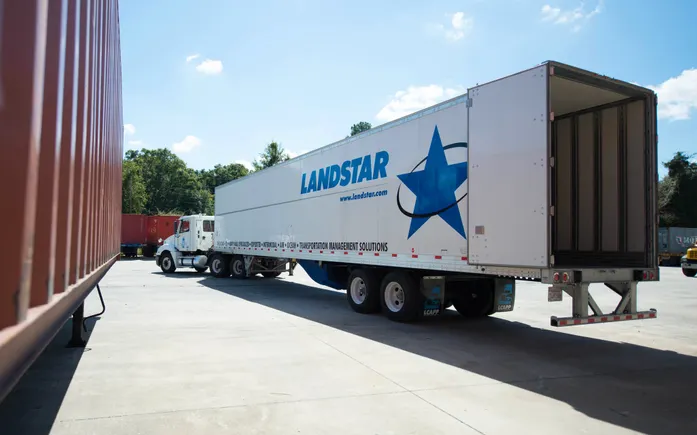In a notable advancement within the logistics sector, Landstar System is significantly enhancing its customer service operations through the implementation of artificial intelligence solutions. During the Q3 earnings call, CFO James Todd emphasized the company’s commitment to integrating AI technologies, stating that Landstar plans to further invest in AI-enabled products across its digital toolkit to enhance support for agents, capacity providers, and employees.
Landstar’s efforts in AI aren’t new; they were previously highlighted by CEO Frank Lonegro in Q2 when he discussed strategies to combat the increasing issue of cargo theft using technology. This strategic focus underscores the growing reliance on AI within the logistics industry.
Three Strategic Areas of Focus
Landstar has identified three primary areas where AI will play a crucial role: agent workflow, business capacity owner (BCO) retention, and corporate operations. The integration of AI within agent workflows particularly targets pricing strategies, although details about this specific implementation remain sparse.
For BCO retention, Landstar aims to analyze signals that may indicate a BCO’s potential departure. By scrutinizing data points such as a decline in load volumes or shifts in freight types, the company hopes to gain insights into future business trajectories. This proactive approach could enable Landstar to address concerns before they escalate, fostering stronger relationships with BCOs.
Furthermore, Landstar is enhancing its corporate support structure to better serve the BCO community. According to Lonegro, the initiative involves developing a comprehensive call center technology suite enriched with AI tools designed to boost efficiency and effectiveness in interactions with both BCOs and agents. He stated, “We’re working on a whole call center technology and suite of AI tools there that are going to help us be more efficient and effective when we deal with both BCOs and agents.”
Investment in Trailing Equipment
In addition to AI-driven customer service improvements, Landstar is also focusing on its infrastructure by investing in advanced technologies for its trailing equipment. Lonegro mentioned that the company is allocating significant capital towards upgrading its fleet, with particular attention to unsided/platform equipment. This investment reflects a broader industry trend, as logistics providers increasingly prioritize technology solutions to enhance operational efficiency.
Landstar’s strategic moves align the company with a growing number of logistics firms, including Roadrunner, Schneider National, ArcBest, and C.H. Robinson Worldwide, all of which are actively exploring AI integrations within their operations. As these organizations recognize the transformative potential of AI, the landscape of logistics is poised for significant evolution.
This adoption of AI not only aims to streamline processes and improve customer interaction but also highlights a commitment to staying competitive in a rapidly evolving market. As Landstar and similar companies continue to innovate, the implications for the logistics sector could be profound, potentially reshaping strategies around customer engagement, operational efficiency, and data-driven decision-making.
See also Google Launches Nano Banana Pro, a Gemini 3-Powered Upgrade for AI Image Generation
Google Launches Nano Banana Pro, a Gemini 3-Powered Upgrade for AI Image Generation Blenders Pride Fashion Tour Unveils India’s First 360° Tech-Driven Runway in Gurugram
Blenders Pride Fashion Tour Unveils India’s First 360° Tech-Driven Runway in Gurugram Advocacy Groups Warn Parents Against AI Toys Citing Risks of Harm to Children
Advocacy Groups Warn Parents Against AI Toys Citing Risks of Harm to Children YouTube Creators Showcase Google’s New Nano Banana Pro and Its Gemini 3-Powered Upgrades
YouTube Creators Showcase Google’s New Nano Banana Pro and Its Gemini 3-Powered Upgrades DeSantis Warns of AI Risks at Rural Florida Summit, Advocates for Infrastructure Investment
DeSantis Warns of AI Risks at Rural Florida Summit, Advocates for Infrastructure Investment






























































